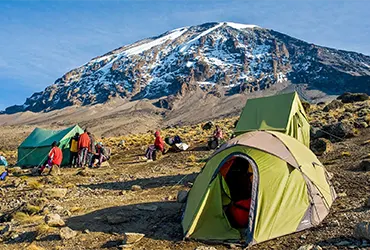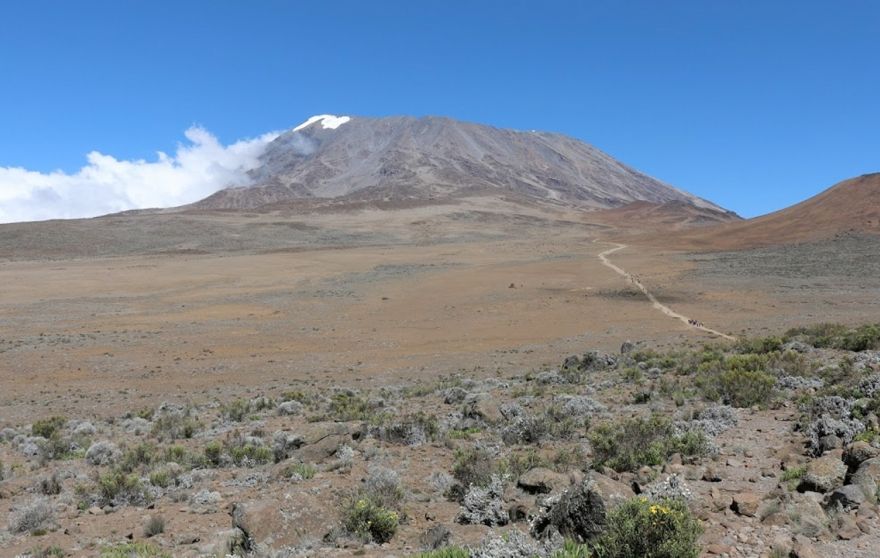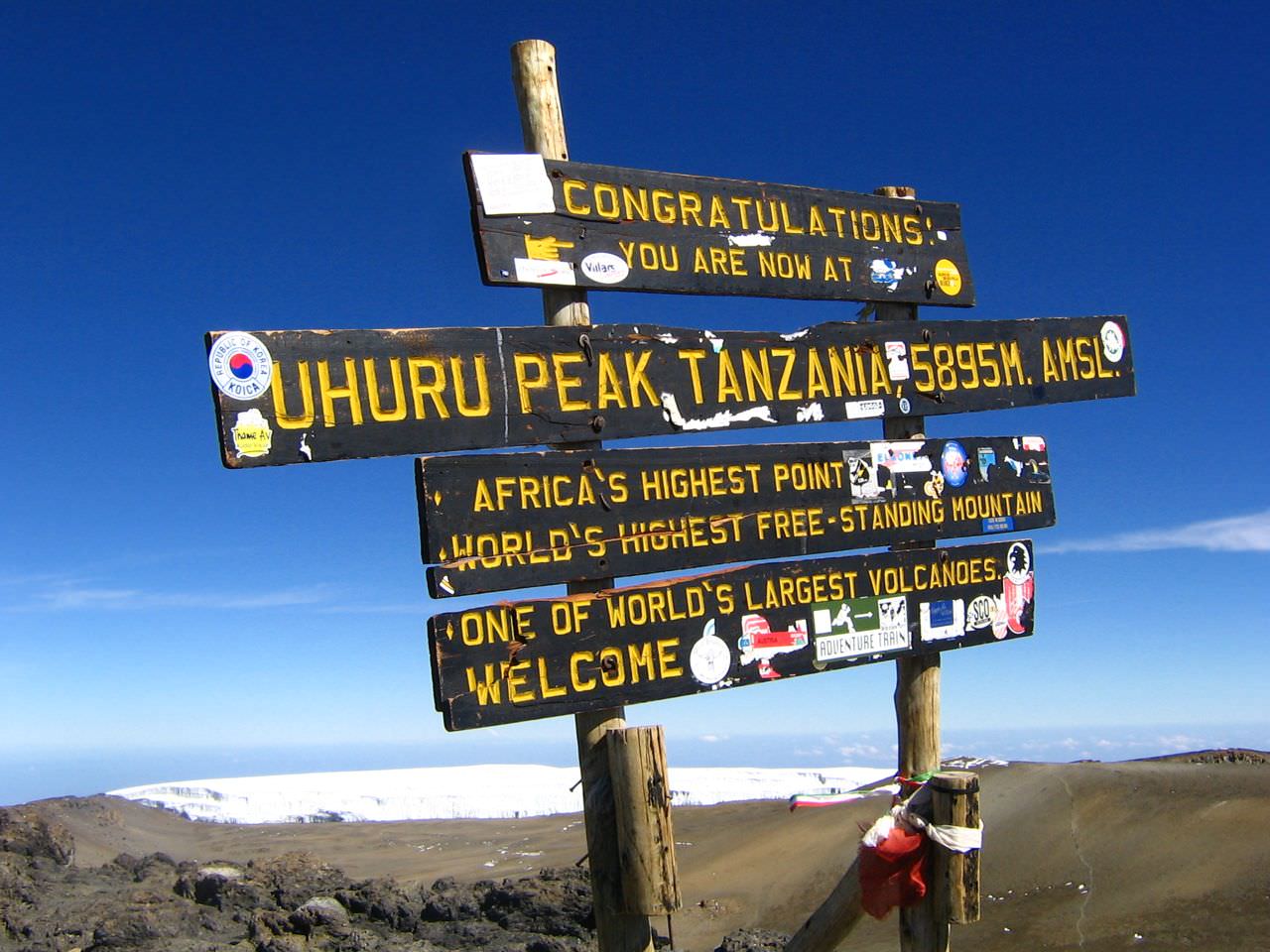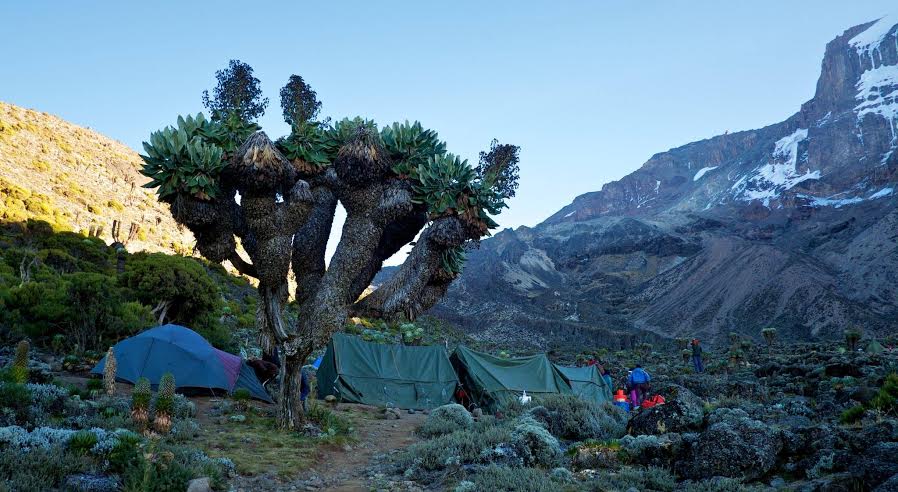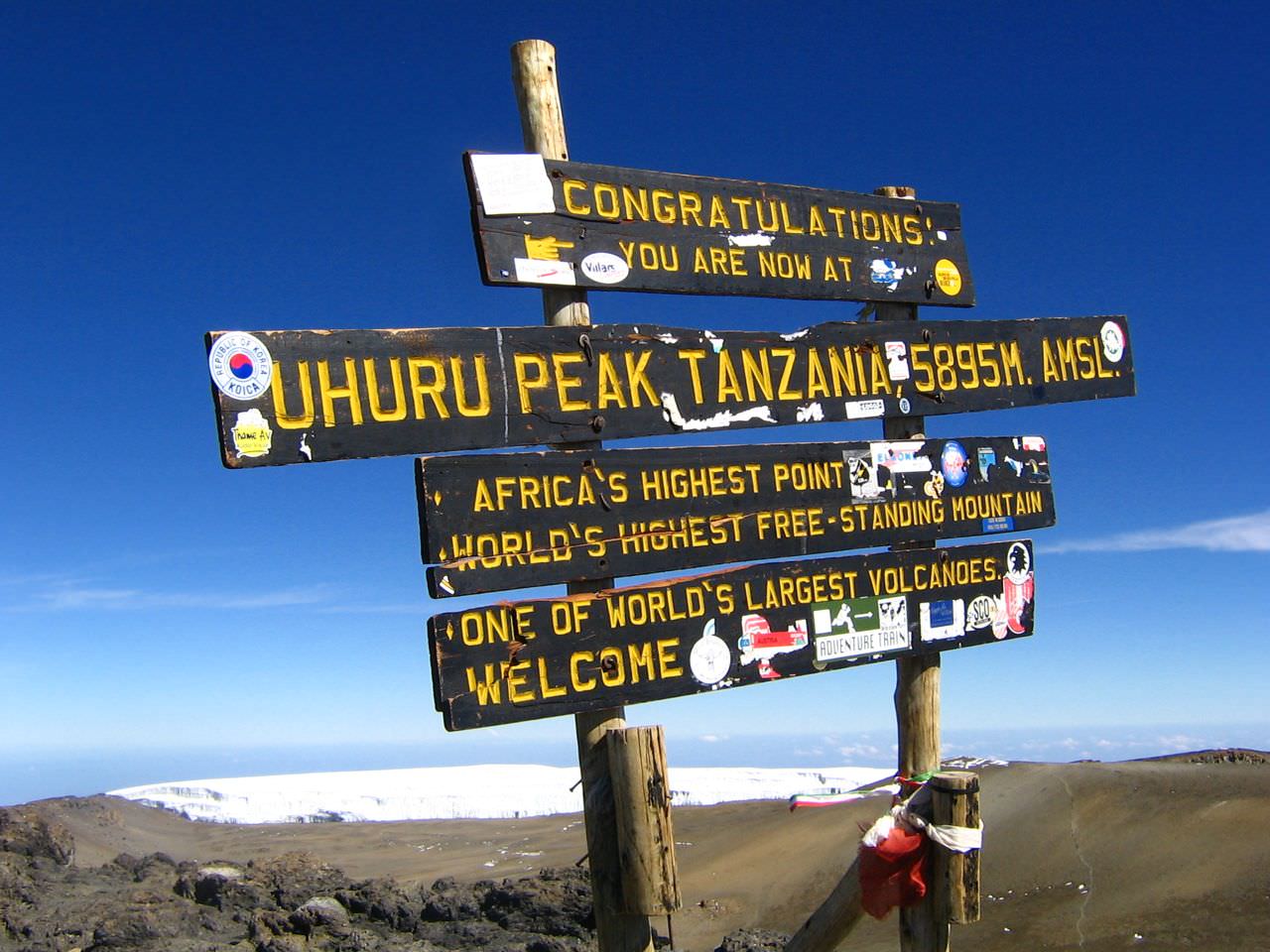Includes
1. Park Fees:
o Kilimanjaro National Park fees, including conservation fees, rescue fees, and camping/hut fees.
2. Guides and Porters:
o Certified, English-speaking mountain guides, porters to carry your luggage, and a cook.
o Salaries, meals, and equipment for all guides and porters.
3. Meals and Water:
o Three hot meals per day on the mountain, with enough variety for proper nutrition.
o Boiled and filtered drinking water throughout the trek.
o Hot drinks such as tea, coffee, and cocoa.
4. Camping Equipment:
o Mountain tents (typically 2-person sharing), sleeping pads, dining tent, tables, and chairs.
o Cooking and eating utensils.
5. Transportation:
o Transfers to and from Kilimanjaro National Park gate (typically from Moshi or Arusha).
o Airport transfers if specified by the tour company.
6. Emergency Evacuation:
o Emergency oxygen and first aid kit (for altitude sickness and emergencies).
o Evacuation plan for emergencies, but not medical or trip insurance.
7. Accommodation Before and After the Trek:
o One or two nights of accommodation in Moshi or Arusha (usually a basic hotel or lodge).
8. Certificate of Achievement:
o Certificate for reaching Stella Point or Uhuru Peak.
Excludes
1. International Flights:
o Airfare to and from Tanzania.
2. Visa Fees:
o Tanzanian visa costs.
3. Personal Gear:
o Climbing gear such as trekking poles, sleeping bags, waterproof clothing, boots, and other personal items.
o Equipment can often be rented from the tour company or local suppliers for an additional fee.
4. Travel and Medical Insurance:
o Insurance covering high-altitude trekking, medical emergencies, evacuation, and trip cancellation.
5. Tips for Guides, Porters, and Cook:
o Gratuities are expected and are a significant source of income for the crew. Typical tipping ranges from $200–$300 per hiker, depending on group size and trek duration.
6. Personal Expenses:
o Items such as snacks, drinks, souvenirs, and any additional hotel services.
7. Optional Items and Extra Accommodation:
o Additional nights in Moshi or Arusha beyond those included in the itinerary.
o Optional day trips, cultural tours, or safaris before or after the trek
Important information
Important Information for Climbing Mount Kilimanjaro (Machame Route)
1. Physical Preparation and Fitness
• Training: Mount Kilimanjaro is a physically demanding trek, so good fitness levels are essential. Prior training, including cardio, strength training, and hiking on steep terrain, will improve your experience and reduce the risk of altitude sickness.
• Altitude Awareness: The trek involves high altitudes, with the summit reaching 5,895 meters (19,341 ft). Preparing your body through prior acclimatization hikes, if possible, is recommended.
2. Packing Essentials
• Clothing Layers: Due to changing temperatures and weather, layered clothing is essential. Include moisture-wicking base layers, insulating layers, and waterproof outer layers.
• Sleeping Bag: A high-quality sleeping bag rated for sub-zero temperatures (-10°C or lower) is critical for comfort on cold nights.
• Other Gear: Waterproof hiking boots, a headlamp, trekking poles, sunglasses, gloves, and sun protection (sunscreen and lip balm).
• Backpack: A comfortable daypack to carry water, snacks, camera, and personal items.
3. Rental Equipment
• Most trekking companies offer gear rentals, including sleeping bags, trekking poles, and down jackets. Confirm what’s available for rent if you do not have or wish to bring certain items.
4. Acclimatization and Altitude Sickness
• Pace and Hydration: To reduce the risk of altitude sickness, trek at a slow pace and drink plenty of water. Your guides will monitor your health and provide advice if symptoms appear.
• Medication: Consult with your doctor about altitude sickness medication (like Diamox), as it can be beneficial but has side effects.
• Emergency Response: Guides carry oxygen and a first aid kit for emergencies. Familiarize yourself with symptoms of altitude sickness and communicate with your guide if you feel unwell.
5. Weather and Climate
• Seasonal Conditions: Kilimanjaro weather varies by season. Dry seasons (June-October, January-February) offer better conditions but can still be unpredictable. Rainy seasons (March-May, November-December) may bring challenges with wet trails.
• Temperature: Temperatures can range from tropical at the base to sub-zero at higher elevations, especially on summit night.
6. Tips for Crew and Guides
• Tipping: Tipping the guides, porters, and cooks is customary and expected. Plan for $200-$300 per person, depending on the group size and trek duration. Your guide can provide guidance on distributing tips fairly among the crew.
7. Health and Travel Insurance
• Mandatory Coverage: Ensure your insurance policy covers high-altitude trekking and emergency evacuation. This is crucial, as hospital access is limited on the mountain, and evacuations are costly.
8. Health Precautions
• Vaccinations: Verify if any vaccinations (like Yellow Fever) are required for travel to Tanzania, especially if you’re traveling from or through regions where they are required.
• Malaria Prevention: While malaria isn’t a concern on the mountain itself, it is present in lower areas, including Moshi. Consult with a healthcare provider regarding malaria prophylaxis.
9. Water and Food
• Water Purification: Boiled and filtered water is provided on the trek. However, bringing water purification tablets or a personal water filter can be a helpful backup.
• Meals Provided: Meals are included and will be a combination of local and familiar foods, often adjusted to provide energy for hiking. Inform your tour operator of any dietary requirements in advance.
10. Porter Weight Limits
• Bag Weight: Porters are limited to carrying a maximum of 15 kg (33 lbs) of gear per person. Personal items beyond this should be carried in your daypack.
11. Summit Night
• Mental and Physical Challenge: Summit night is the most physically demanding part of the climb, starting around midnight and involving a steep ascent in very cold conditions. Mental preparation is key, and guides will support and encourage you along the way.
12. Environmental Responsibility
• Leave No Trace: Kilimanjaro is a UNESCO World Heritage site. Help preserve its beauty by packing out all waste and following the “leave no trace” principles.
• Plastic Restrictions: Single-use plastics are restricted on Kilimanjaro, so consider reusable options.
13. Visa and Entry Requirements
• Visa: Most visitors require a visa to enter Tanzania. Visas can typically be obtained upon arrival or online in advance.
• Passport Validity: Ensure your passport has at least six months of validity beyond your intended departure date from Tanzania.
